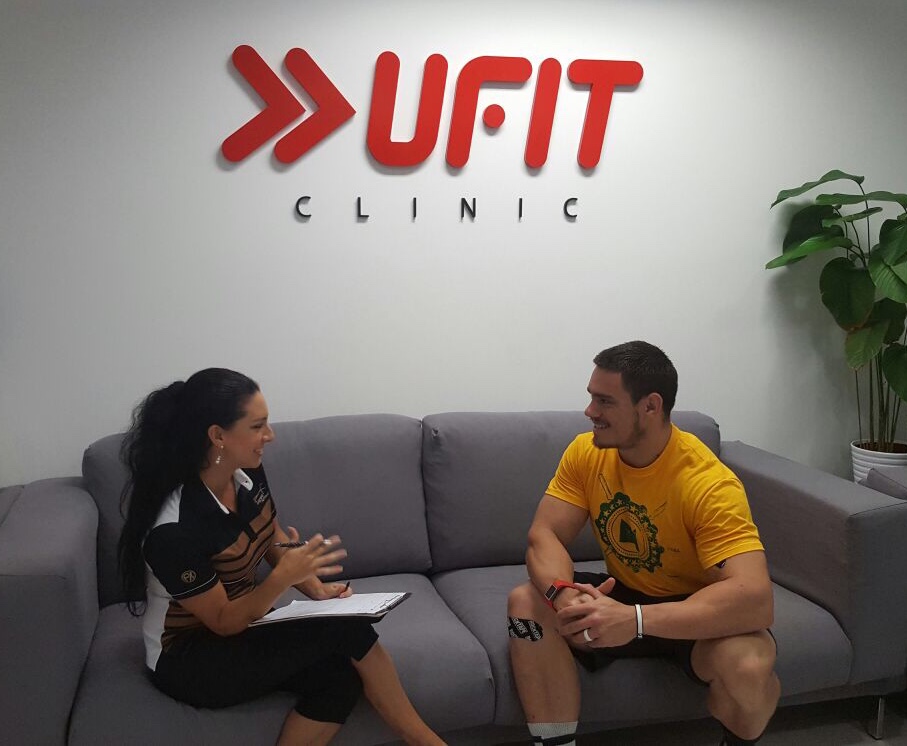“I just really enjoyed the workouts…pushing the boundaries, seeing how far I could push my body, and getting “comfortable with the uncomfortable.”
To be a formidable competitor as a CrossFit athlete, dedicated physical preparation is a must, but mental preparation ensures you are truly ready to deal with the adversity that CrossFit delivers. For an in depth look into the practice of mental toughness in this extraordinary sport, I met up with 2015’s “Fittest in Singapore” (by CrossFit HQ, USA), Dylan Goddard, at the UFIT clinic.
What drives your passion for CrossFit?
“What drew me to CrossFit was the intensity of it. It never gets easy, you just get better. You become more efficient with the movements, but you will always be giving 100% effort. At first it wasn’t about competing, I just really enjoyed the workouts…pushing the boundaries, seeing how far I could push my body, and getting “comfortable with the uncomfortable.”
“Everyone makes their choices and for me it’s based on making the most of my talent and the perspective that it’s not going to last forever.”
What does being mentally tough mean to you?
“First of all, being disciplined to stay on a course day in, day out and not diverting from the master plan when things get tough. Sacrifice is also a huge part of it. For me, if I am regularly going out and getting smashed then I am not an athlete. That’s not what a performance driven athlete is about. Everyone makes their choices and for me it’s based on making the most of my talent and the perspective that it’s not going to last forever.”
J-L: For goal directed individuals, to establish sacrifice a sense of being on a mission is often needed to manage the drudgery of the day-to-day grind. An appreciation for the moment in time and knowing it’s not going to last forever is the big picture perspective that has allowed champions like Michael Phelps to sacrifice the good life and stay clean and sober during his Rio campaign. “I have a year left in my career. If I really want it bad enough, I will make that sacrifice.”
How does the concept “the mind always leads the body” apply to your experience?
“When you are in the gym everyday, sometimes you just aren’t motivated to train [and everyone has those days no matter your level]. You have to find a way to be mentally strong for the first 10–15 minutes and then you have momentum and are ready to workout. I have a hash tag or reminder I use; THINK STRONG. It is a tie between being physically strong and mentally tough, and it always helps me set my mind on task and my body is ready to get the job done.”
J-L: Dylan’s use of the “trigger” word THINK STRONG is an actual technique in psychology used to activate particular images or associations in memory just before carrying out an action or task, which can quickly prime a person to think and feel a certain way. Trigger words can capture the mind-set or attitude you want to carry in training or competition, and be called upon when you lose focus or intensity to help you bounce-back. Trigger words can also be used to improve technical performance. I use this extensively with gymnasts to help connect the athlete to the specific feeling of the desired movement. It reduces thinking and enhances commitment in skill execution.
Do you have routines or rituals you follow before a competition?
“I use breathing techniques as part of my routine – I do a lot of diaphragmatic breathing. Last year, I also started to incorporate internal visualization techniques – It’s like I’ve dealt with the pain BEFORE I have done the workout. I know what the movements feel like and what I should be feeling through the workout mentally and physically. I know when it’s going to hurt, and I remind myself I’m going to get passed it and it is nothing more than me just getting uncomfortable.”
J-L: Internal Visualization refers to a form of imagery in which you imagine what you would feel inside your own body while performing a skill. This skills is key for taking control of emotions and sensations from anxiety and nervousness to exertion pain. It is one skill I focus extensively on refining in athletes I work with. When an athlete can anticipate, accept, and proactively manage uncomfortable sensations in imagery, they build confidence and practice to do this when it really counts.
Do you think all individuals who love CrossFit could benefit from mental toughness training?
“Yes. Its got to be gratifying if you can mentally perform better in a way that helps you achieve your physical goals. If your goal is to compete in the CrossFit open, and you have the add on of the mental toughness training and are able to control things a little better, how satisfying would that be. And everyone at our box takes it seriously, they are all driven and competitive and deserve to perform well.”







